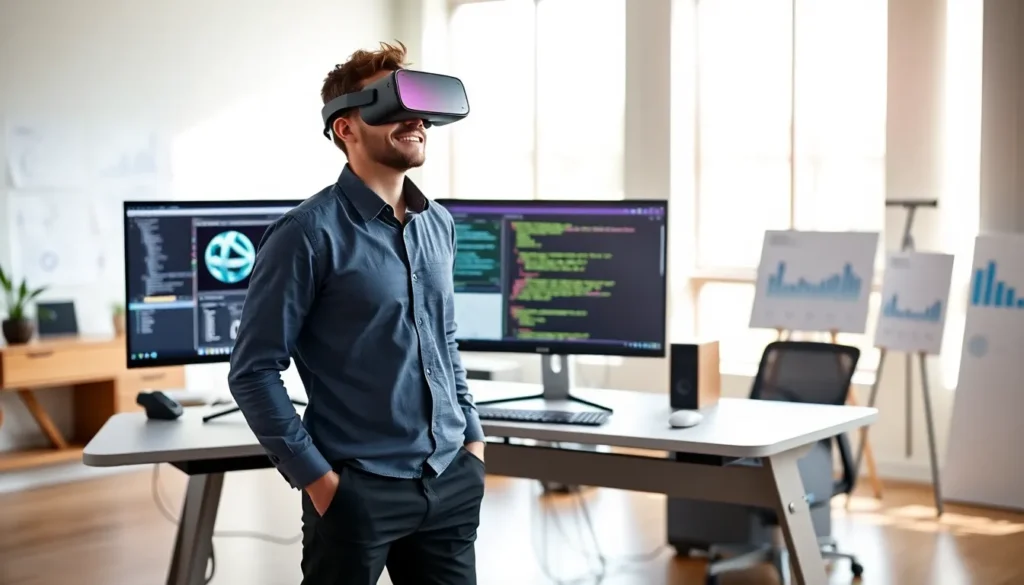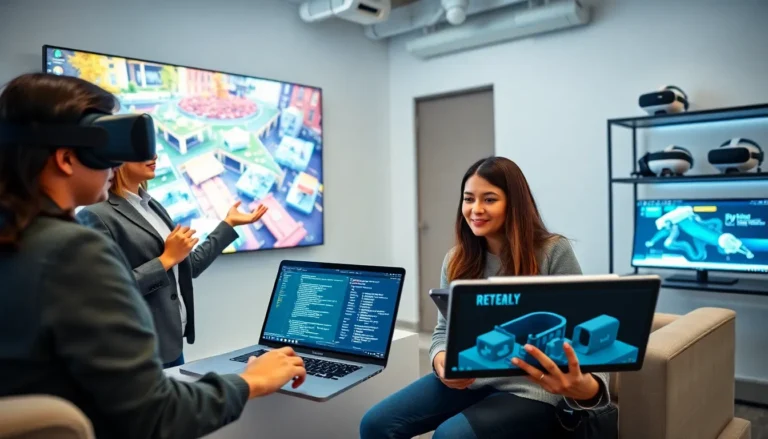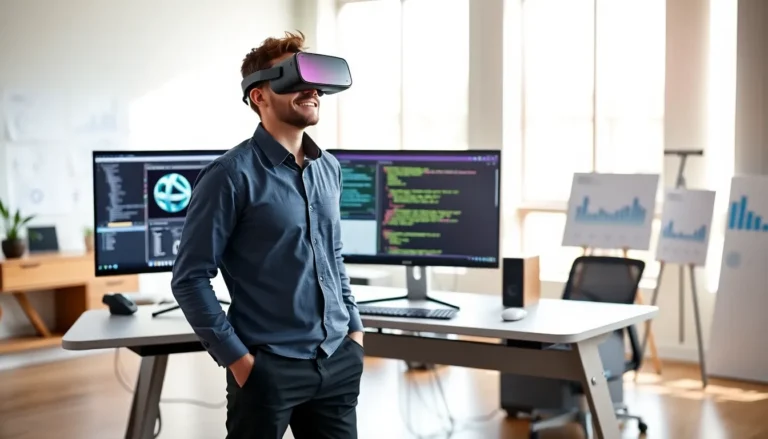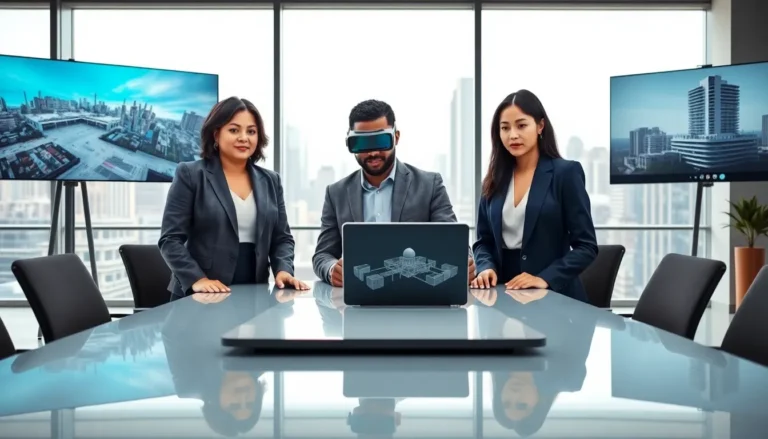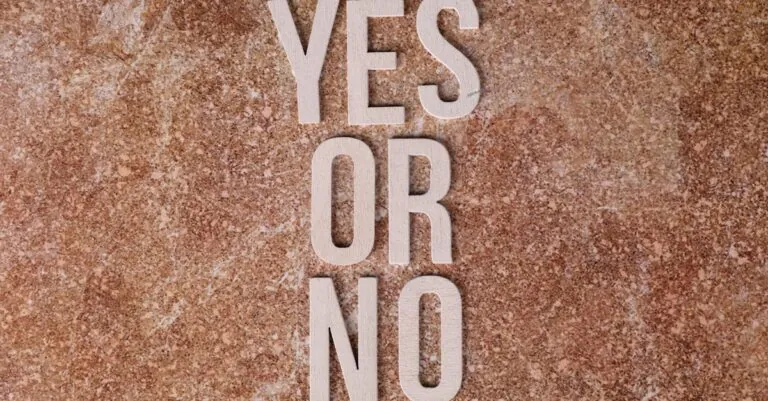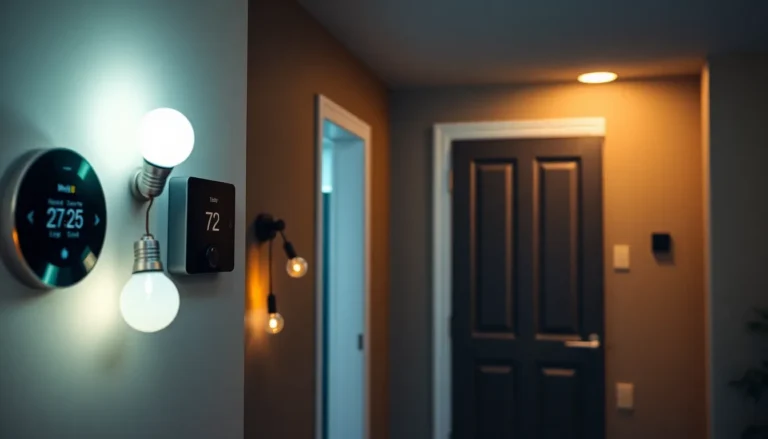In a world where virtual reality promises bucket loads of excitement and innovation, hiring the right developer becomes crucial. Imagine creating experiences so captivating that your users start questioning whether they’ve walked into a sci-fi movie. But, not all virtual reality developers are cut from the same cloth. If you’re looking to make waves in VR with projects that not only dazzle but also deliver, you’ll need someone who knows their way around a headset, 3D models, and coding like a champ. Ready to dive down the rabbit hole of virtual reality development? Let’s unravel the mystical layers and find out how to hire that rockstar developer.
Table of Contents
ToggleUnderstanding Virtual Reality Development
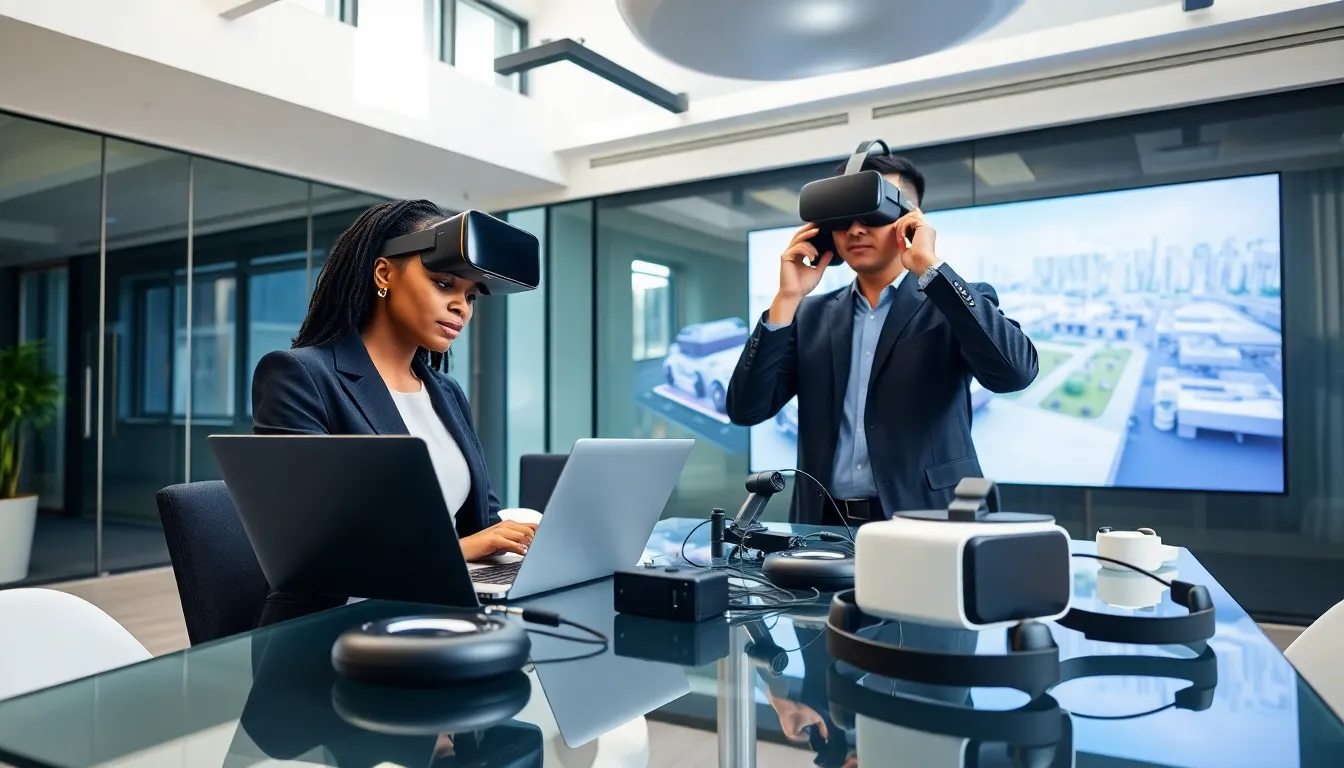
What Is Virtual Reality?
Virtual reality (VR) is much more than a trendy buzzword gracing tech conferences. At its core, VR refers to a computer-generated environment that immerses users in a simulated experience, enabling them to interact with a 3D space as if it were the real world. Think of video games that transport you to fantastical lands or training simulations that prepare astronauts for their next mission to Mars. The technology uses headsets, cameras, and various sensory feedback mechanisms to create convincing illusions that trick the brain into believing it’s somewhere else entirely. As industries ranging from gaming to healthcare embrace this technology, let’s next explore the role of a virtual reality developer in bringing these experiences to life.
The Role of a Virtual Reality Developer
Skills Required for Virtual Reality Development
Hiring a virtual reality developer is like shopping for a Swiss Army knife, versatility is key. These developers need a diverse skill set that combines artistry and technical expertise. Here are the essentials:
- Proficiency in Programming Languages: Knowledge of programming languages like C#, C++, and JavaScript is crucial as these help in scripting interactions and behaviors within the VR environment.
- 3D Modeling and Animation: A grasp of software such as Blender, Unity, or Unreal Engine enables developers to create and manipulate 3D assets. Visual storytelling hinges on this ability.
- Understanding of Physics and User Interface Design: Developers must design user-friendly interfaces and understand how objects behave in a virtual space, ensuring a realistic experience.
With this skill set, virtual reality developers can shape imaginative worlds that resonate with users.
The Importance of Experience and Portfolio
How to Identify the Right Virtual Reality Developer
When hunting for the perfect virtual reality developer, their experience and portfolio will often speak volumes. It’s not merely about years spent in the field, but also the variety of projects they’ve tackled. Look for a developer who has worked across different industries, be it gaming, education, or real estate. Each field has unique considerations and demands that can hone a developer’s skills.
Assessing Technical Skills and Tools
While a strong portfolio is vital, technical skills are equally important. Developers should be familiar with the tools and technologies specific to VR development. These include:
- Game Engines: Unity and Unreal Engine are staples in the industry, and knowing how to maneuver in these platforms can provide a developmental edge.
- VR SDKs: Familiarity with Software Development Kits (SDKs) for various VR hardware is essential for ensuring compatibility and functionality across different devices.
Asking potential candidates to demonstrate their technical abilities or discussing past projects can further illuminate their competence.
Evaluating Soft Skills and Cultural Fit
Where to Find Virtual Reality Developers
Technical prowess aside, soft skills are the unsung heroes of a successful development project. Effective communication, teamwork, and adaptability play a crucial role in bringing a team’s vision to fruition. Look for developers who demonstrate:
- Collaboration Skills: They should work seamlessly with designers, artists, and project managers.
- Creativity: Their ability to think outside the box can be the difference between a good VR experience and a truly memorable one.
The search for talent can lead you to various platforms. LinkedIn, industry-specific job boards like VRScout, and GitHub are treasure troves. Don’t forget to tap into your network: referrals can sometimes land you the best candidates.
Freelance Platforms vs. Development Studios
What to Consider When Hiring a Virtual Reality Developer
Choosing between a freelancer and a development studio largely hinges on the scope of your project. Freelancers offer flexibility and often come at a lower cost. But, if your project demands specific hardware and a team of experts, a development studio may be the better option.
- Freelancers: Often skilled, they can be a great fit for smaller projects. Check their reviews and past projects carefully to ensure they meet your expectations.
- Development Studios: These often house a team with diverse expertise, ideal for larger, more complex projects. They can help mitigate risks and bring varied perspectives to the table.
Budget and Costs of Virtual Reality Development
When it comes to costs, expect a range. Freelancers may charge anywhere from $25 to $150 per hour, while development studios might range from $75 to $250 per hour depending on the expertise involved. Having a clear budget and understanding the scope of your project will help in making informed decisions and avoiding sticker shock later on.
Project Scope and Timeline
Determining the project scope early on sets the groundwork for success. Outline specific goals, required features, and expected timelines. A well-defined scope can help smoother communication, ensuring that both developer and client are on the same page. Also, be ready for some give and take: timelines may shift depending on difficulties encountered during development. A realistic framework can make all the difference in navigating this evolving landscape.

